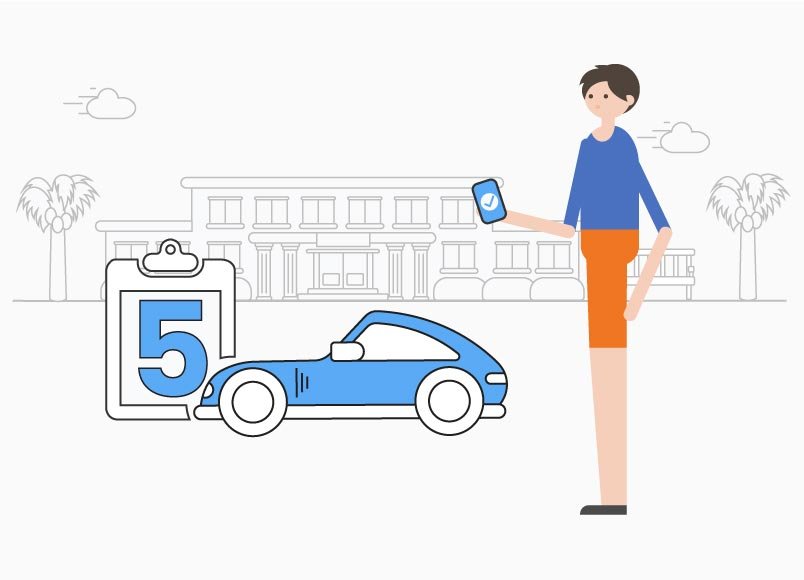This might come as a surprise, but not everyone is a great driver. Almost a third of all collisions are rear-end collisions, according to the National Highway Transportation Safety Administration. These types of accidents often take place when someone crashes into a stopped car at a red light or stop sign.
We also tend to run into things. More than 20% of collisions are with stationary objects such as poles, shrubbery or a parked car. And we crash into parked cars (358,000) way more often than poles and posts (208,000).
But not all accidents will make your insurance rates go up, in fact it is still possible to obtain affordable auto insurance.
What Is a “Chargeable” Accident?
A chargeable accident is one that can lead to an auto insurance rate increase. This generally means an accident where you were more than 50% at fault and that caused:
- Damage to property, like another car or someone’s fence.
- Bodily injury or death.
Some states might define a chargeable accident in terms of a dollar amount. For example, in Minnesota, a chargeable accident is defined as an accident for which the car insurance company paid more than $500 under bodily injury liability, collision or property damage coverage, with some exceptions.
Some states, such as Massachusetts, consider a chargeable accident one that involves a claim payment of more than $1,000 for property damage liability, collision or bodily injury coverage (for accidents where the operator is more than 50% at fault and driving a private passenger vehicle).
Not All Accidents Make Your Insurance Rates Go Up
Not all car accidents are “chargeable.” Here are typical examples of non-chargeable accidents:
- Your car was legally parked when it was damaged.
- Your car was struck in the rear by another vehicle and you (or the driver of your car) were not convicted of a moving traffic violation in relation to the accident.
- Your car was struck in a hit-and-run accident. (You may be required to report the accident to the police within 24 hours after discovering the damage, depending on the state and insurance policy.)
- The driver of another car was convicted of a moving traffic violation associated with the accident, but you were not convicted of a moving traffic violation.
- The accident was caused by a collision with an animal or fowl.
- The damage was caused by falling objects or flying gravel or missile-like objects.
- The accident happened when you were responding to an emergency and you are a volunteer or paid member of the fire department, first aid squad or law enforcement agency.
- Your car insurance company was able to recover 80% or more of your collision insurance claim through subrogation (typically, this means they were able to collect from the other driver’s car insurance company).
- You were reimbursed by the person who caused the damage.
- There is a court judgment for the accident against the person who caused the damage.
- Accidents in which claim payments are made under the personal injury protection (PIP) coverage and no payments are made under liability or collision insurance.
How To Prove You’re Not at Fault
An auto insurance company might require proof from you that an accident was not your fault and therefore not chargeable. Satisfactory proof can vary among companies but often includes:
- A police report that says who was at fault.
- A statement from the other driver’s insurance company accepting fault.
- A legal document showing that you were reimbursed for damage.
- A driver’s written statement, under penalty of perjury, attesting to their fault.
What’s an Auto Insurance Surcharge?
A surcharge is the insurance increase you can get after a chargeable accident. You’ll find out whether you’re getting a surcharge at renewal time. An insurer can’t start surcharging you in the middle of the policy period.
Car accidents are not the only problems that can result in a surcharge. You can also get surcharges for moving violations.
How Long Does a Surcharge Affect My Car Insurance Rates?
The length of a surcharge for a car accident depends on your state and insurance company, but will typically last three to five years. For example, states such as New Jersey, New York and Texas only allow insurance companies to surcharge you for accidents for the past three years.
Depending on your state and insurance company, a surcharge could be applied to your insurance policy, but the added cost could decrease each year you drive without an accident (or any other surchargeable events). For example, if you live in a state that looks only at the past three years of your driving record, the surcharge increase may be non-existent after three years of safe driving.


